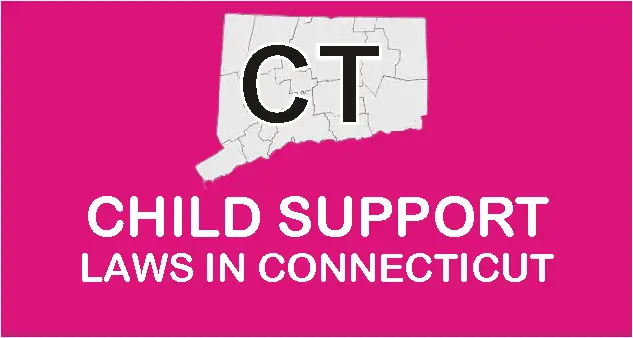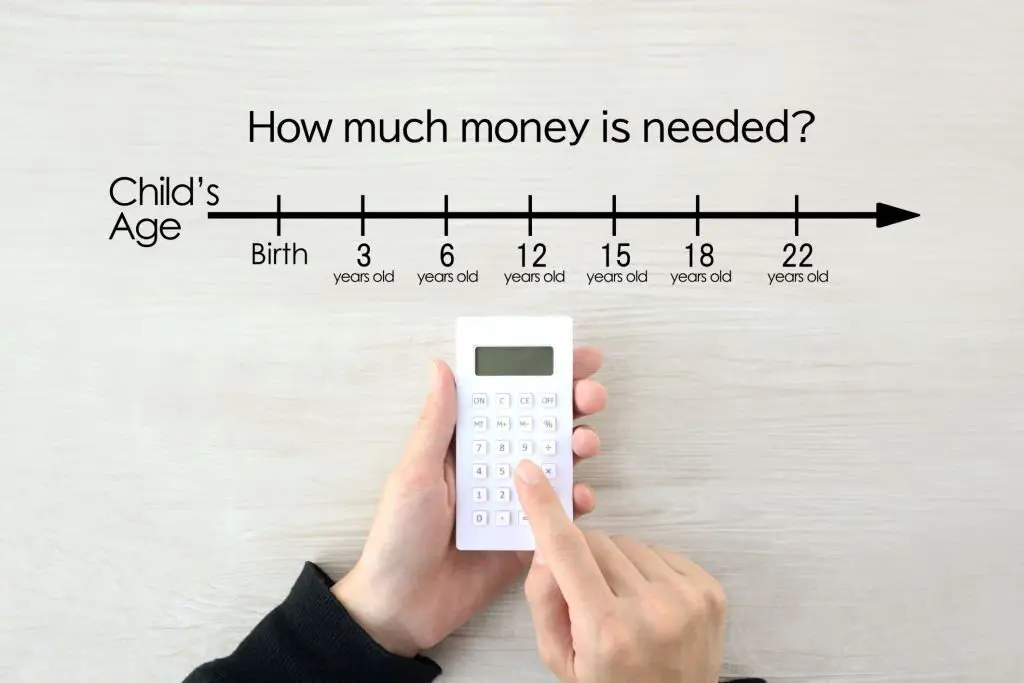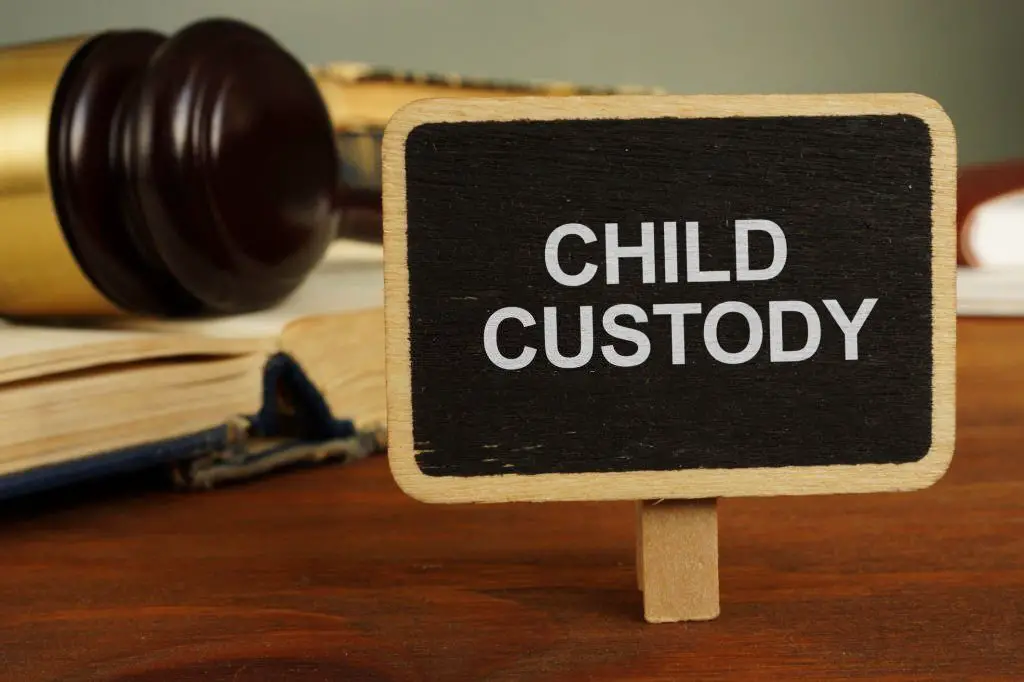
The laws governing child support in Connecticut are different from that of other states. CT child support law sets how much the child maintenance should be, and the duration of such payments, plus it seeks to guide parents in exceptional cases such as deviation, support for disabled children, and retroactive support.
As you may already know, child support (or child maintenance) is a continuous monetary payment made by a spouse to another spouse, guardian, caregiver, or the state for the upkeep of children after a divorce or separation.
The person who is required to pay child support is referred to as the “obligor,” whereas the person who is eligible to receive child maintenance is referred to as the “obligee.”
What is CT Child Support Laws?
The Connecticut Child Support and Arrearage Guidelines which are based on the “income shares model” is where the laws governing child support in CT are contained. It assumes that a kid should get the same share of parental income that they would have gotten if their parents had lived together. The Child Support Guidelines are a mathematical formula based on the income sharing model at their most fundamental level.
In other words, the cost of raising a kid is not taken into account when determining child support under the Child Support Guidelines; rather, the calculation is based on the parent’s combined net income. Considerable living expenses include things like food, shelter, and clothes.
How is Child Maintenance Calculated In Connecticut?

Learn How Child Maintenance Calculated In Connecticut
According to the Connecticut Child Support Guidelines, support is determined using the net income of each parent. “Gross income less permitted deductions” is the definition of “net income.” “Gross income” can include wages, commissions, bonuses, pension, and retirement income, as well as trust income.
To calculate “net income,” “gross income” is reduced by mandated costs including medical insurance premiums and required retirement contributions, as well as federal, state, and Social Security taxes.
The Connecticut Child Support Guidelines then compute a percentage based on the income sharing model mentioned above, the number of children both parties have, and the aggregate weekly net incomes of both parties. The percentage that each parent contributes to the total net weekly income is calculated to determine the amount of support that each parent is required to pay.
The computed amount for the custodial parent is kept by that parent and is probably used for the child’s support and upkeep. The assumed support order to be paid to the custodial parent is the sum determined for the noncustodial parent.
Basic Child Support Obligation
You must combine the net weekly incomes of both parents together to obtain the basic child support amount, and then compare the total to the column in the Schedule of Basic Child Support Obligations that corresponds to the number of children.
The instructions provide the most recent version of this timetable. According to the schedule, the basic amount of child support for one child would be $229 if the total net weekly income is $1,000.
The next step is to divide each parent’s income by the total combined income to determine their respective percentage portion of the $229 support payment. The noncustodial parent would be accountable for 60 percent of the $229 support amount (600 divided by 1,000) and the custodial parent for 40 percent of the $229 support amount, for instance if the noncustodial parent makes $600 a week and the custodial parent earns $400 a week (400 divided by 1,000).
Even though the Worksheet calculations will provide you with a support amount for each parent, only the noncustodial parent is required to pay support since courts assume that the custodial parent’s part of the direct costs of raising children is already being covered. Therefore, the minimum weekly support obligation would be $137.40. (60 percent of 229).
- $229 for 1 child
- $322 for 2 children
- $385 for 3 children
You should deduct the weekly benefit amount from the required support if a kid is receiving social security dependency benefits based on the noncustodial parent’s earnings record.
Connecticut Child Support Calculator or Worksheet
While a child support calculator can be used to estimate child support, it is not a guarantee of the final amount of child maintenance that the judge will order. A child support worksheet is a form used by the CT courts (or negotiating spouses) to approximate the basic child support obligation of the parents.
Regardless of which approach you use, spouses can decide on a child support sum and amend the worksheet accordingly to ensure it accurately reflects their agreement. Both establish a presumption duty to pay child support.
The final decision on the amount of child support is made by the administrative law judge, administrator, or court.
Net Income for CT Guidelines

How to determine Net Income for CT child support
Remove the following costs from the total gross income to get the parent’s net income for paying child support in Connecticut:
- Social Security taxes, or any mandated retirement plan contributions if the parent does not pay those taxes.
- Income taxes, both federal and state (based on the tax rate for a single person claiming one exemption)
- union dues
- The CT court has ruled the parent to pay the child’s health and dental insurance premiums, as well as additional medical bills.
Parents who have already paid child support for another kid or children (from a previous relationship) may be eligible for a refund.
Gross Income Included in Calculating Child Maintenance
For child support calculation purposes, gross income includes:
- all wages and salary, including commissions, military pay, tips, overtime, and bonuses
- self-employment income
- interest and dividends
- net rental income from property the parent owns
Even jobless parents are likely to have some sources of income, like:
- severance pay
- unemployment benefits
- retirement benefits
- veterans’ benefits
- disability benefits, or
- workers’ compensation awards.
A CT family court judge may also allocate an income value to parents who do not currently have income-earning employment (like a second house). If a jobless parent inherits assets that can be sold, for instance, the judge may include the property’s market value as a part of such parent’s income.
Where parents willfully go unemployed or underemployed in order to avoid paying child support, judges may infer (assign) income based on what they are supposed to be earning.
What does Child Support Cover in Connecticut?
The CT “Child’s Budget” Policy of the Guideline only covers basic needs like food, clothing, and shelter (room and board,).
It offers a formula for parents to split expenditures associated with uninsured or unreimbursed medical bills and work-related childcare fees in addition to the standard child support payment. The costs of raising children often go over this for many families.
Taking sports, extracurricular activities, summer camps, school fees, computers, cell phones, teachers, SAT prep, college application costs, or pocket money as an instance, assistance under the Child Support Guidelines is not taken into account.
Child Support When One Parent Lives Outside Connecticut
The Connecticut State Department of Social Services (CT DSS) might not have jurisdiction over a non-custodial parent who resides in another state. They are in charge of determining parentage, setting up child support, and enforcing child support judgments. Based on your scenario, they handle recommendations to other states to do this.
An income withholding order (IWO) sent to the employer of the non-custodial parent may be used to collect child support if there is currently a court-approved order in place.
Using the Uniform Interstate Family Support Act, (UIFSA) CT DSS may request assistance from the child support office of the other state if it is necessary to establish parentage, create a court order, or enforce the payment of support.
The UIFSA ensures that child support processes and procedures are consistent across states. When one spouse lives in another state where the Connecticut courts do not have authority to adjudicate or enforce orders, UIFSA reduces these bottlenecks.
Is Medical Health Insurance Part of Child Support in Connecticut?

Medical Health Insurance and Child Support in Connecticut
Yes, in addition to the amount of support determined by the guidelines in Connecticut, the parents will be responsible for the child’s health and dental insurance.
A spouse who currently has health insurance may agree to keep it up as long as it’s affordable and still offered through a job. Both spouses may decide to split the expense of private coverage if it is no longer available to that spouse or either spouse, or they may both apply for HUSKY coverage.
Many divorced parents agree to prolong health insurance coverage until the child is able to obtain coverage through his or her own employer, spouse, or domestic partner, which is often until the child is 26 years old, Connecticut’s maximum permissible age.
Factors Connecticut Courts Consider Before Ordering Maintenance
The following factors must be considered by the court when determining whether Connecticut Family Code applies:
- The age of the child and needs; the parents’ ability to assist
- Financial resources available to the child
- For a set period of time, you have custody and access to a child.
- An increase or decrease in the obligee’s earnings or income due to the obligee’s property and assets
- Child care expenses incurred by either parent in order to keep a job
- any other children under the care of either party
- Any other children under the care of either party
- What kind of alimony or spousal maintenance is being paid or received;
- Obligor or obligee receives an automobile, house, or other benefits from his or her employer or business entity.
- The parties or the child’s special education, health-care, or other expenses
- The cost of traveling to obtain custody of and access to a child.
- Cash flow from any estate and assets, including real estate, personal property, and business property, can be positive or negative.
How to Modify Child Support Order
A parent must show that there’s been a substantial change in circumstances in order to alter child support. A Connecticut court may consider an alteration if:
- a parent’s employment has been lost,
- migrated to another country,
- Alternatively, if the custody agreement has changed.
Additionally, if the legal order has been in existence for at least 3 years and the current support amount differs by 20% or $100 from the most recent Guidelines, the obligor may visit the Office of Attorney General Child Support Division (OAG) to explore modifying it.
Steps to Apply for Child Support Modification in CT
Step 1: Compile the paperwork
For a modification (to amend your order), you need these forms:
– Changing the motion (JD-FM-174) used to request a modification of the court’s order.
– Physical form (JD-CL-12) used to notify the court that you are representing yourself and to ensure that you receive notices from the court.
– Application for Fee Waiver (JD-FM-75) used when you have a very low income and wish to ask the court to waive your fees and costs or cover them for you.
– Financial Affidavit (JD-FM-6-SHORT or JD-FM-6-LONG) Used to detail your income and outgoing costs.
Step 2: Complete the forms
The employees at the Court Service Center can assist you to fill out the forms correctly the first time and can answer basic questions regarding them, but they are unable to advise you on the appropriate language to use in your court documents.
Step 3: Submit the paperwork to the court
To the Court Clerk’s Office with the forms. If you believe you will not be able to pay the State Marshal fee, submit the completed Application for Waiver of Fees to the Clerk.
Step 4. Have the documents “served”
In most cases, a state marshal performs this.
Step 5: Collect data for your hearing
For instance, bills and pay stubs. Additionally, it is a good idea to bring the following items to your court appearance:
– Your pay stubs from the previous 13 weeks,
– Details on any benefits you get (such as Social Security payments, cash assistance from SAGA, or unemployment compensation), and
– Documentation of any medical conditions that may prevent you from working is also required.
Step 6: Attend your hearing in court.
Reading the Judicial Branch pamphlet What Happens When You Go To Family Support Magistrate Court is the best method to comprehend what will happen at your hearing if it takes place in Family Support Magistrate Court. This pamphlet, which can be found online at www.jud.ct.gov/publications/fm209.pdf, provides answers to a number of frequently asked questions.
Steps to Collect Child Support in Connecticut

Steps to Collect Child Support in Connecticut
Getting a child support order in place is only half the struggle in Connecticut. You’ll also have to collect the money itself. A noncustodial parent is responsible for paying the full amount of child maintenance per month as imposed by the court. Here are the steps for getting child support in CT
1. Open a Child Support Case
Complete a child support application with your local child support agency/office
2. Locate the Other Parent
To begin the child maintenance procedure in CT, the child support services (CSS) office will use the information provided by the applying parent, as well as information gathered from other sources, to try to locate the other parent.
3. Establish Parentage
It’s critical to establish a legitimate relationship with the child when the other parent has been located. The state will assist you in locating the sufficient means. Parents can choose to acknowledge their parentage voluntarily or organize a genetic screening.
4. Establish a Child Support Order
A Connecticut child support order specifies how much the other parent should pay and includes details such as the payment schedule and provisions for the child’s health insurance.
5. Set Up Payment
Deducting child maintenance from a parent’s paycheck and transferring the money to the other parent or guardian is the most typical method of payment. It’s a simple way to make and track child support payments.
6. Enforce the Support Order
Your CT child support services will enforce the child support order if the noncustodial parent does not pay the full amount or does not pay any. Exposing overdue child support payments to credit bureaus, intercepting income tax refunds, and Withholding child maintenance from unemployment or worker’s compensation benefits are examples of other enforcement measures.
7. Review the Order
Three years after the order is issued, either parent can request their local child support office to revise it. They can ask for a reassessment sooner than three years if a parent’s situation has changed significantly, such as loss of employment or imprisonment.
Connecticut Child Support Services Office, Number and Login Portal
Support Enforcement Services
Address: 99 Main St #1, Norwich, CT 06360, United States
Phone: +1 860-886-2694
Website: https://www.jud.ct.gov/childsupport/
Retroactive Child Support and Arrears
If the other parent was able to afford child support during that time, a parent may be eligible to obtain retroactive child support. If the child is under three years old, the court may order retroactive support going back up to three years or to the child’s birthdate.
How to enforce retroactive child support payments in CT
The custodial parent should do the following:
- Use this form to submit a motion for contempt on your own.
- Contact an attorney to file the motion for contempt on your behalf,
- Request that the Bureau of Child Support Enforcement brings a contempt complaint on your behalf.
The court will schedule a hearing after the motion has been submitted to your county superior court clerk’s office. You must demonstrate the following in order to establish that the other parent is disobeying the child support order:
- a court has a current, legitimate child support order on file.
- According to the requirements of the child support decree, support has not been paid.
- The non-payment by the delinquent parent was willful, so:
– He/she knew about the court’s order for child support, and
– He or she was able to afford the prescribed sum of child support.
If you feel the arrears are being demanded wrongly, you can learn how to get child support arrears dismissed HERE.
How to Pay Child Maintenance in Connecticut
In Connecticut, parents can pay child maintenance in a variety of ways, as long as your order doesn’t state otherwise:
- by debit or credit card,
- mail,
- check
- bank transfer
- direct deposit
- income withholding, or
- auto-draft from a bank account.
How to Check your Child Support Payment History in CT

How to Check Child Support Payment History in CT
When there are disagreements between the parents and a need to confirm how much money is owed, child support payment records are extremely beneficial.
When Does Child Support End in Connecticut?
The Connecticut court “may order that one or both parents to support a child until:
- the child is 19 years or finishes high school (whichever comes first),
- The other parent of the child marries or moves in with someone else.
- the child dies.
- the parent is incarcerated or unemployed.
Nevertheless, if the judge determines that the child is disabled (physically or mentally), the child can receive support perpetually.
What is the Average Child Support Payment in CT?
?The total net weekly income ranges covered by the Connecticut Child Support Guidelines are $50 a week to $4,000 a week. When both parents earn more than $4,000 per week in combined net income, child support is decided on a case-by-case basis.

Understanding Custody Rights of a Child in Connecticut
How Does CT Child Support Work if one Parent Has no Job?
In order to amend (alter) the support order, a parent must demonstrate a significant change in circumstances. One parent acquiring a job that pays much more or the parents altering the number of days each of them spends with a child each week permanently are two instances of circumstances that might necessitate alteration.
If a court determines that either parent is voluntarily unemployed or underemployed, it may approximate a parent’s potential earnings potential (what the parent could make given factors like work history, training, education, and available jobs in the area) and calculate child support predicated on that earning capacity instead of on the earnings of a lower-paying job.
Is Child Support Tax Deductible in Connecticut?
NO. In Connecticut, child support payments are neither taxable to the recipient nor tax-deductible by the payer as stated by the IRS. Don’t include child support payments when calculating your gross income to see whether you have to file a tax return.
However, either parent may be eligible for a dependency exemption per child. If the parents can’t agree on who receives the exemption, the judge will set out the terms in a court order.
Getting a Skilled Connecticut Child Support Attorney
If you are involved in a family law matter in Connecticut, you may have a lot more questions than answers at this moment. You are not alone; Correspondence with members has shown that using the services of specialized child support attorneys saves a lot of hassles and most importantly, ensures you come out as a winner for you and your kid.
If you need to fight your child maintenance cause in CT with confidence, then you’ll need attorneys that are both empathetic and strong.
Luckily, we have compiled a database of these expert child support lawyers and made them available for the convenience of our members. You can reach them at the click of a button for legal advice and representation on child maintenance.
Click Here to Get our Free Connecticut Alimony recommendation.
Child Support Laws in all 50 States
A - Alabama | Alaska | Arizona | Arkansas
C - California | Colorado | Connecticut
D-H - Delaware | Florida | Georgia | Hawaii
I - Idaho | Illinois | Indiana | Iowa
K-L - Kansas | Kentucky | Louisiana
M - Maine | Maryland | Massachusetts | Michigan | Minnesota | Mississippi | Missouri | Montana
N - Nebraska | Nevada | New Hampshire | New Jersey | New Mexico | New York | North Carolina | North Dakota
O - Ohio | Oklahoma | Oregon
P-S - Pennsylvania | Rhode Island | South Carolina | South Dakota
T-U - Tennessee | Texas | Utah
V-W - Vermont | Virginia | Washington DC | Washington State | West Virginia | Wisconsin | Wyoming
Connecticut Resource
- Connecticut Child Adoption Guidelines
- Connecticut Child Custody and Visitation Guidelines
- Connecticut Child Support Guidelines
- Connecticut Divorce Guidelines
- Cost of Divorce in Connecticut
- Connecticut Marital Property Guidelines
- Connecticut Spousal Support Guidelines
- How to Check Connecticut Child Support Payment History




